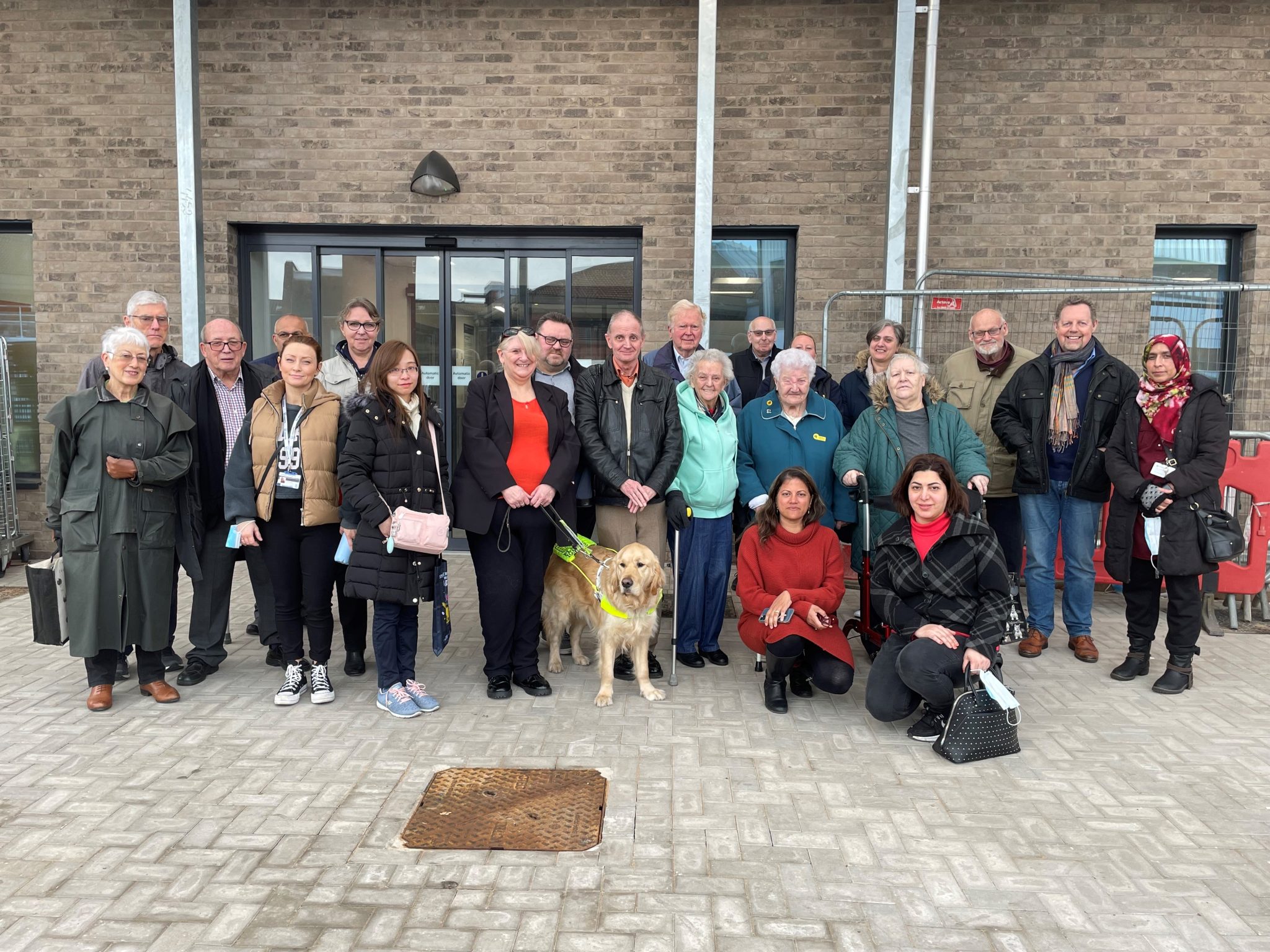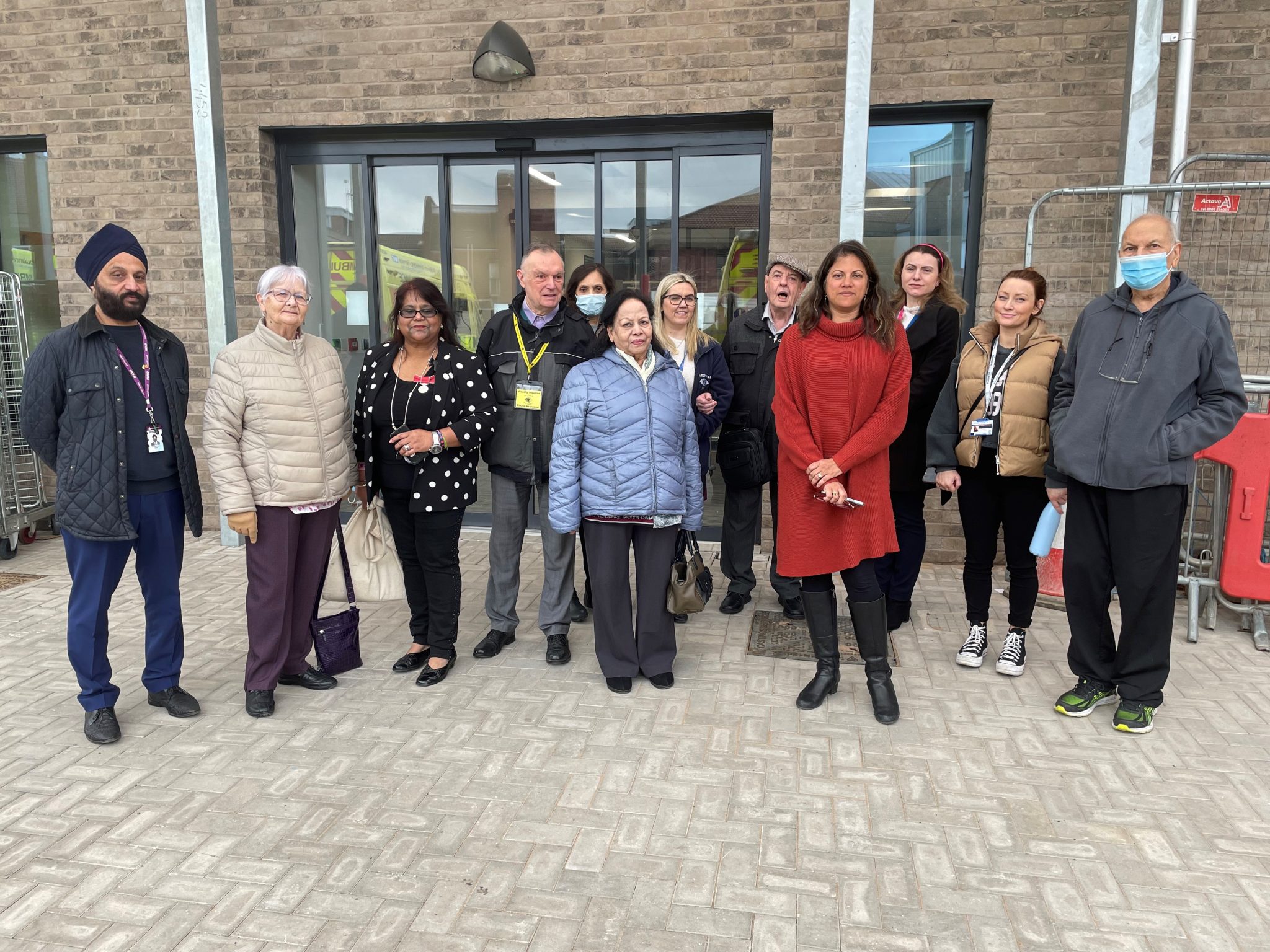Members of Healthwatch Walsall and focus groups which have been involved in the new Urgent and Emergency Care Centre project at the Manor Hospital have been able to have a look around the c£40m feature ahead of the first patients moving in.
They were invited in earlier this week and given a tour by Miss Ruchi Joshi, Consultant in Emergency Medicine and Deputy Divisional Director for Medicine and Long Term Conditions.
The first team to move into the new centre will be the Emergency Department (ED) overnight tonight (Wednesday 1 March into Thursday 2 March).
Engagement has taken place with groups of:
- Children and Young People
- Patients with a physical disability, a Learning Disability or complex needs
- Deaf and hearing impaired patients
- Blind and visually Impaired patients
As a result of the tour, a slight adjustment is being made to the height of the soap/hand gel dispensers in some cubicles and wheelchair users were assured that sensor bins would be provided in all accessible toilets.
Other visitors had queries about patients with mental health issues and were shown the new anti-ligature mental health rooms which allow a quieter space, out of the hustle and bustle of the often-busy department, and greater privacy and dignity.
Maria Kazemi who is a Healthwatch member, said: “I have been very impressed with the space and the layout of the new centre.”
Steve Mellor, who has a visual impairment, said the bigger cubicles were a plus but urged Walsall Healthcare NHS Trust to consider all audiences when producing any patient materials.
The Trust is working with Walsall Society for the Blind to support an audio guide to the new layout.
There are six drop-off points outside the ED and a nearby public car park, which is currently being resurfaced, will be open mid-March with 10 spaces for people with disabilities out of around 70 spaces.
The multi-million-pound facility includes an Urgent Treatment Centre, Emergency Department including Resus and Rapid Assessment and Treatment area, and Children’s ED, co-located Paediatric Assessment Unit, Acute Medical Unit and provision for Frailty and Community Integrated Assessment services.
It also includes re-configuration of the current Emergency Department footprint, to incorporate improved Ambulatory Emergency Care and Imaging services.
Various specialist facilities are located throughout, such as an isolation room for infectious patients, bariatric provision and digital X-ray rooms. All areas have been designed specifically to enhance clinical staff efficiency, improve quality of care, improve patient experience, and improve the working environment for staff.
Miss Joshi urged patients, their families and carers to give feedback on their experiences at the new centre.
“She said: “We don’t want bad habits in our new build and want to start positively with a culture where patients feel empowered to challenge us if we get something wrong but also highlight when something works well for them.
“I want to be able to say to staff – this is what a good experience looks like and these are the specific reasons why. We need our local communities to hold us accountable and work with us to make this the first-class service we all want it to be.”


